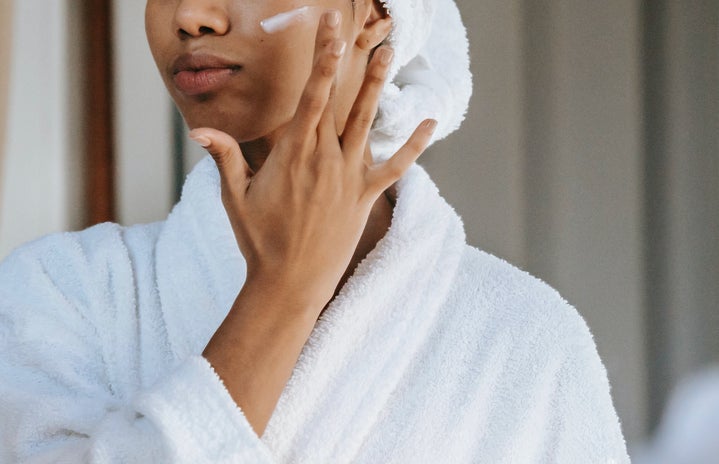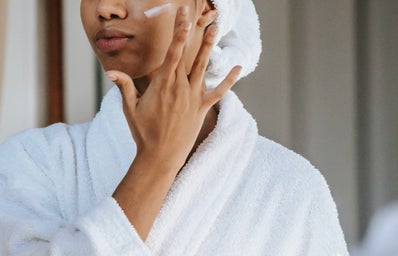“Retinoid” is a label that includes vitamin A derivatives (such as retinol and retinaldehyde) that have a robust clinical record of reducing the appearance of wrinkles, boosting the production of collagen in the deeper layers of your skin, improving skin texture and so much more. Some derivatives are prescription, but there are even more available over-the-counter. Before you decide which type to purchase, or whether they are even worth using at all, make sure your information is accurate and you’re not just falling for these four common retinol myths:
- Retinoids make you more sensitive to the sun
-
Many dermatologists recommend patients to be better about using sunscreen daily when they begin using retinoids (even though you should be doing that anyway), but the reason is not exactly that retinoids make you more sensitive to the sun or that they increase your risk of sunburn. As board-certified dermatologist Dr. Andrea Suarez, or “Dr. Dray,” as she is more popularly known, explains on her YouTube channel, UV radiation and visible light can actually break down the retinoid. Also, retinoid prescriptions are typically used to combat aging, which is very significantly caused by sun damage via what’s called “photoaging,” so it is obvious that your dermatologist recommends you use sun protection to maximize the benefits of treatment.
In fact, retinoids are known to inhibit the activation of the enzyme “collagenase,” which the sun activates and uses to erode collagen, so, theoretically, the topical application of vitamin A could reduce the burden of sun damage if you wear it the night before your beach trip.
- Teenagers can’t use retinoids
-
Many people believe that the topical application of vitamin A prior to your 30s can cause premature aging by sensitizing your skin to the sun, but this is wrong for many reasons (including the above one). Retinoic acid was originally, and still is, used as an acne treatment, which most commonly affects teenagers. The anti-aging skin benefits were only discovered later on.
- Retinoids thin the skin
-
While it is somewhat true that retinoids thin the skin, it is not negative in the way that many consumers fear. The vitamin A derivatives only thin the stratum corneum, which is the topmost layer of skin that is composed of dead skin cells. Regardless, clinical studies and rigorous testing have proven that the net result of continued topical retinol usage is increased skin strength and health. This is because retinol has been scientifically proven to thicken the layer of collagen in the deeper dermis layer of your skin, according to Dr. Kellie Reed, another board-certified dermatologist.
- Sensitive skin can’t tolerate retinoids
-
Many people worry that retinoids will be too harsh on their skin and cause too much havoc to their barrier, but Stanford dermatologist Dr. Zakia Rahman disputes this and explains measures those with sensitive skin can take to comfortably derive the benefits of this powerhouse ingredient. Retinols are less potent ingredients that you can access without prescriptions which are less irritating but still effective (although results may take longer to appear than with other retinoids like tretinoin). These are not only a great option for those with sensitive skin but also beginners to vitamin A. If you are still worried about potential irritation, you may apply your moisturizer prior to applying retinol, or even sandwich moisturizer before and after retinol.
Unfortunately, many people fall prey to myths that retinoids are dangerous, but they are actually powerful ingredients that can greatly improve your skin’s health and strength. These vitamin A derivatives have gone through robust studies and clinical trials to get to your skincare cabinet, so give them the credit they deserve. But don’t just take my word for it! Listen to your dermatologist and do your own research to find the ingredients that will work the best for your skin.


